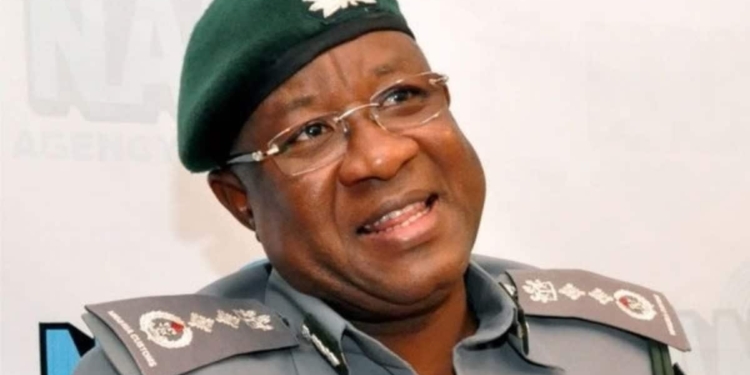A Federal High Court in Abuja has stopped the Economic and Financial Crimes Commission (EFCC) from prosecuting a former Comptroller General of Customs (CGC), Abudullahi Inde Dikko for alleged financial infraction while in office.
Justice Nnamdi Dimgba, in a judgment on Monday, upheld Dikko’s argument that he could no longer be prosecuted by any agency of the Federal Government, in view of a non-prosecution agreement between him and the Attorney General of the Federation (AGF), which was witnessed by the Director General of the. Department of State Services (DSS).
Dikko stated that, by the agreement, Dikko was required to refund $8m or its naira equivalent at an exchange rate of N197 to a dollar, which was allegedly not remitted to government coffers while he served as the CGC.
Justice Dimgba held that since it was proved that such an agreement exist, and Dikko has kept his side of the bargain by paying N1, 576,000,000 and more to the Federal Government, through the EFCC’s funds recovery account in Central Bank of Nigeria (CBN), it was wrong for the EFCC or any other agency of government to seek to prosecute him (Dikko) on the same alleged offence.
The judge noted that the 1st and 2nd defendants in the suit filed last years – the AGF and DG, DSS – did not object to the suit by not filing any counter-affidavit.
The judge said their decision not to oppose the case implied that they did not contest the claim by Dikko that he had an agreement with the Federal Government through the AGF, against prosecution and that he had kept his side of the bargain.
He further held that, by the provisions in Section 174 of the Constitution, the AGF, being the chief law officer of the federation, was given wide powers and discretion on prosecution matters.
The judge added that the EFCC and its Chairman, listed as the 3rd and 4th defendants, could not deny an agreement validly entered with a suspect by the AGF in the exercise of his powers under Section 174 of the Constitution.
Justice Dimgba faulted the claim by the 3rd and 4th defendants that their insistence on investigating and prosecuting Dikko was based on an anonymous petition.
The judge held that such a petition by a faceless author “cannot override the discretionary powers conferred on the Attorney-General of the Federation by virtue of section 174 of the Constitution.”
He added: “The 3rd and 4th defendants cannot hide under an anonymous petition to challenge the agreement entered into on behalf of the FG by the Chief Law Officer of the Federation.
“I do not therefore think it is right for the 3rd and 4th defendant to continue to act on the premise of an anonymous petition, even when they were present at a meeting with the plaintiff, as if the agreement reached with the AGF was meaningless or non-existence.
“On the question of the existence of the agreement, there is no doubt that the agreement exist,” he said.
In view of the contradictory positions held by all the Federal Government agencies and offices listed as defendants in the case, the judge said it was wrong for government agencies to openly disagree.
He added: “There is a need for the Federal Government to speak with one voice and not in different tunes that appear to be discordant.”
The judge noted that, if the EFCC was not satisfied that Dikko met the terms of the agreement, which existence it admitted, the 3rd and 4th defendant ought to have sought clarification from the office of the AGF rather than seeking to commence a separate investigation.
The judge was of the view that the word of the AGF should assume the status of a bond, which could be taken to the bank and not treated as though it could be unreliable.
Justice Dimgba proceeded to resolve all the issues identified for determination against the defendants and granted the plaintiff’s reliefs, which included a restraining order against the defendants.






Discussion about this post